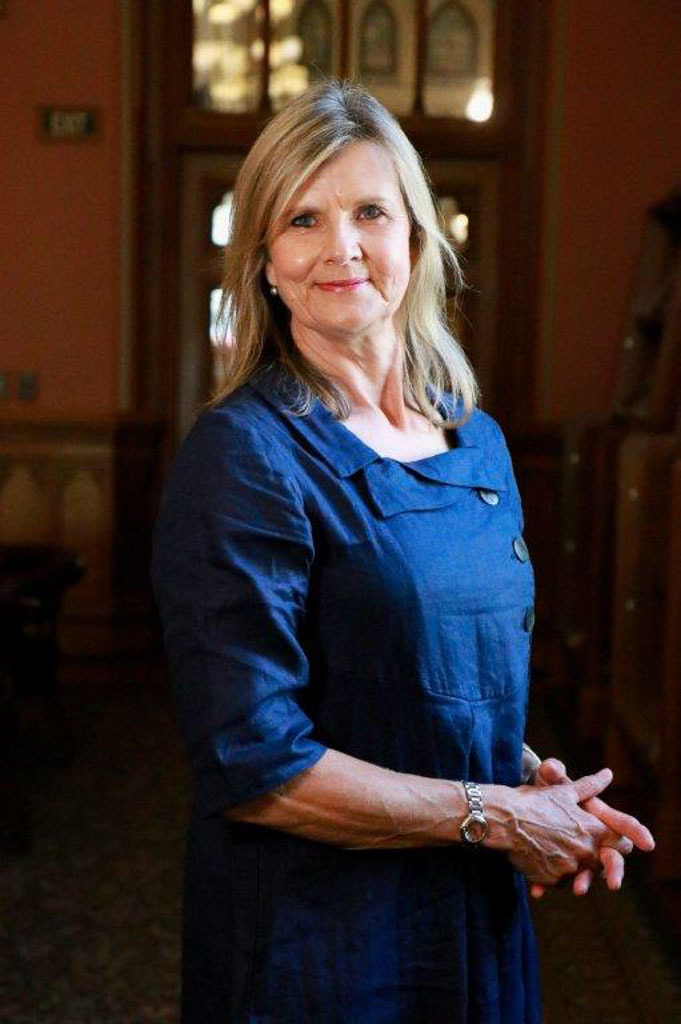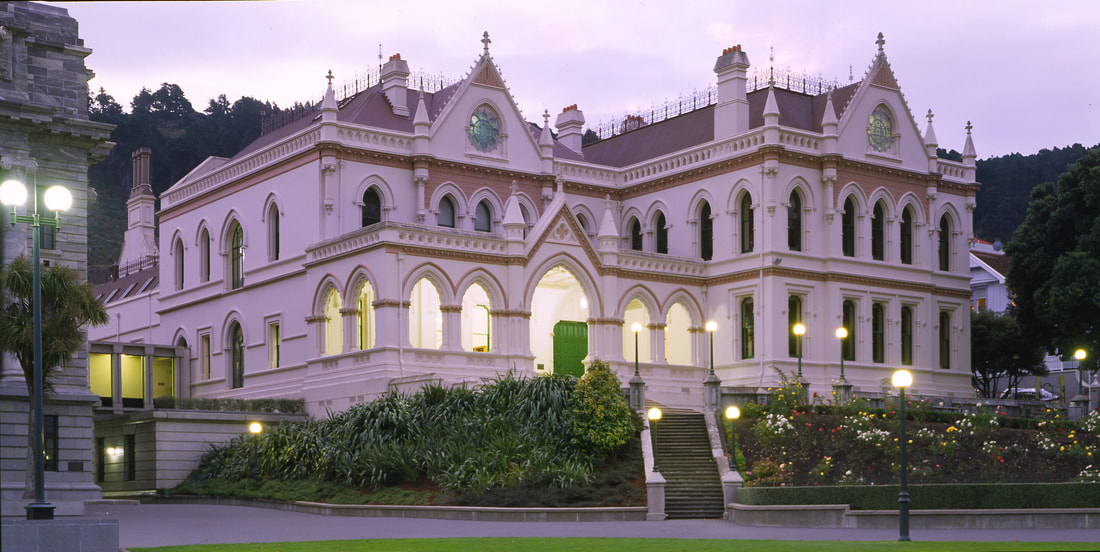Career Pathways with Barbara McPhee - former Parliamentary Librarian Deputy Chief Executive
|
In this column, we interview library and information professionals – finding out how they got to where they are and any advice they have for students or new professionals. In this issue we talk with Barbara McPhee, who recently left her role as Parliamentary Librarian Deputy Chief Executive, Parliamentary Service.
Barbara said her farewells on a list-serv back in January,saying, “Over my 17 years in the parliamentary environment, I’ve had some amazing experiences and worked with some truly wonderful people both in my role as research manager and then more recently as Parliamentary Librarian DCE. In that time, we've worked through organisational restructures and a major review of the Parliamentary Library collections ensuring that our resources are relevant, manageable and accessible for members of Parliament and their staff. More recently we've had to relocate parliamentary library staff while earthquake strengthening is undertaken on the parliamentary precinct, and we've launched a new service portal where clients can seamlessly lodge and track requests. All fascinating stuff! But now it’s time for me to move on. So I'm looking forward to a new environment, some new opportunities and challenges.” |
Kia ora Barbara and thanks for sharing your career pathway with our readers. First up; what are your plans for the future?
Now that I’ve finished at Parliament, I’m back on the job market. Most of my career has been in the library, information and research sector. But I’m really curious about other sectors, and how my skills and experience might transfer to different environments.
What did you do day-to-day at the Parliamentary Library? Can you also tell us what qualifications you have?
Day-to-day focus in the Parliamentary Library is all about supporting the information and research needs of members of Parliament. My part in that evolved over the years from managing one of the research teams to leading the strategic direction of the Parliamentary Library. Not unlike other special libraries, that’s about ensuring that the library is well positioned in a corporate environment, competing alongside other supporting functions such as finance, HR, security, IT etc; but with the fundamental goal of delivering great customer service. More recently as Deputy Chief Executive for the Parliamentary Service, there have been some fantastic opportunities to lead initiatives on employee engagement, enterprise-wide information management, organisational design, and smart service platforms. I have an under-graduate degree in humanities and a post-graduate Diploma in Librarianship.
Now that I’ve finished at Parliament, I’m back on the job market. Most of my career has been in the library, information and research sector. But I’m really curious about other sectors, and how my skills and experience might transfer to different environments.
What did you do day-to-day at the Parliamentary Library? Can you also tell us what qualifications you have?
Day-to-day focus in the Parliamentary Library is all about supporting the information and research needs of members of Parliament. My part in that evolved over the years from managing one of the research teams to leading the strategic direction of the Parliamentary Library. Not unlike other special libraries, that’s about ensuring that the library is well positioned in a corporate environment, competing alongside other supporting functions such as finance, HR, security, IT etc; but with the fundamental goal of delivering great customer service. More recently as Deputy Chief Executive for the Parliamentary Service, there have been some fantastic opportunities to lead initiatives on employee engagement, enterprise-wide information management, organisational design, and smart service platforms. I have an under-graduate degree in humanities and a post-graduate Diploma in Librarianship.
|
Is this the career you always intended to go into?
Yes. I had an awesome careers advisor in secondary school who suggested librarianship and she organised a visit to a university library. From that point on, I was hooked! What was your idea of what librarians are and what they do before you became one? In my experience, librarians continue to battle against that reputation of being stuffy, intellectual ... maybe even a little supercilious. Of course in reality we are as diverse and as fascinating as any professionals. Just scratch the surface of any librarian and be prepared to be surprised about what emerges! |
Do you have any career highlights you’d like to share with our readers?
I was super lucky to attend the IFLA pre-conference for parliamentary libraries in Washington DC in 2016. There I was invited to a private function with the Director of Congressional Research alongside a very select bunch of colleagues from Westminster, Canada, Scandinavia and Australia. We discussed how we support our respective parliaments, the challenges, successes, future plans. Kapow!
If you were meeting someone who had just finished their undergraduate degree and was contemplating doing a post-graduate LIS qualification what would you say to them? What sort of personal attributes do you think you need to go into LIS work?
I have always loved the idea of contributing to great things. Whether it’s the science behind new kiwifruit varieties, giving children the gift of reading, reforming law, or supporting a transparent democracy. I believe that my post-graduate studies opened the door to those possibilities. If you’re thinking of post-graduate studies, you only need to be curious enough to turn the door handle.
Have you got any librarian mentors/people who influenced you or you admire/learned from? What did they teach you?
There is not a single role I’ve held where I haven’t been influenced in my actions or approaches by a manager, a librarian, a colleague, or a customer. I’m a huge believer in the notion that people who you interact with, are the springboards for lifelong learning. Here’s what Satya Nadella (CEO Microsoft) said: “Don’t be a know-it-all. Be a learn-it-all”.
I was super lucky to attend the IFLA pre-conference for parliamentary libraries in Washington DC in 2016. There I was invited to a private function with the Director of Congressional Research alongside a very select bunch of colleagues from Westminster, Canada, Scandinavia and Australia. We discussed how we support our respective parliaments, the challenges, successes, future plans. Kapow!
If you were meeting someone who had just finished their undergraduate degree and was contemplating doing a post-graduate LIS qualification what would you say to them? What sort of personal attributes do you think you need to go into LIS work?
I have always loved the idea of contributing to great things. Whether it’s the science behind new kiwifruit varieties, giving children the gift of reading, reforming law, or supporting a transparent democracy. I believe that my post-graduate studies opened the door to those possibilities. If you’re thinking of post-graduate studies, you only need to be curious enough to turn the door handle.
Have you got any librarian mentors/people who influenced you or you admire/learned from? What did they teach you?
There is not a single role I’ve held where I haven’t been influenced in my actions or approaches by a manager, a librarian, a colleague, or a customer. I’m a huge believer in the notion that people who you interact with, are the springboards for lifelong learning. Here’s what Satya Nadella (CEO Microsoft) said: “Don’t be a know-it-all. Be a learn-it-all”.


